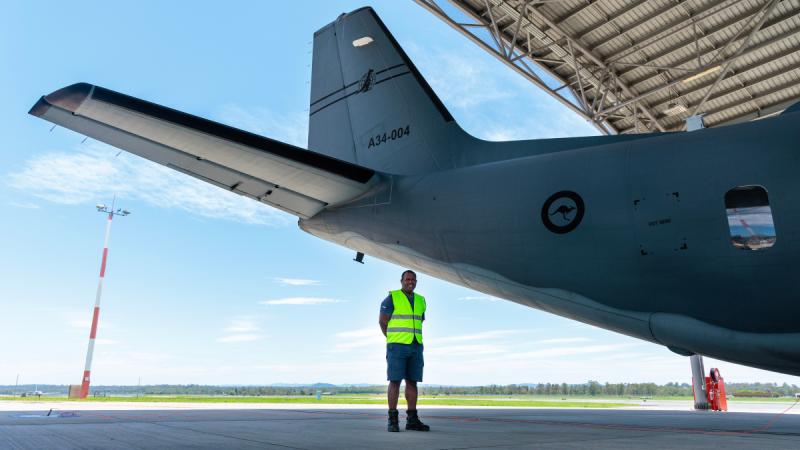24 November 2025
Representatives of Australia and Laos shared knowledge on humanitarian assistance and disaster response initiatives at a seminar in Vientiane this month.
Part of Indo-Pacific Endeavour 2025, the seminar followed a Royal Australian Air Force C-130J Hercules delivery of disaster relief stores to the Lao capital.
The aircraft contained about 11 tonnes of non-perishable stores, including kitchen and hygiene equipment, mosquito nets and blankets.
Foreign policy adviser at the Australian Civil-Military Centre, Linda Gellard, who led the Australian contingent at the seminar, said the centre’s mission was to do three things: collaborate, build capability and share knowledge.
“Today, we’ve been sharing information about the stores delivery, how the relief stores were selected and how the Australian Government works in partnership with the Lao Government in responding to their request for assistance,” Ms Gellard said.
The seminar also focused on breaking down the complex structures of the international humanitarian system.
“If participants took away one thing from today, I hope it would be the importance of civilian, military and police agencies working together before a crisis so that we already have established relationships before a crisis hits,” Ms Gellard said.
“One of the things that really struck me today is how much we can all learn from each other. There are many similarities between Laos and Australia when it comes to emergency response, particularly around natural disasters like floods and fires.”
'It is now more dangerous to be a humanitarian worker than in the past 50 years.'
Ms Gellard said she had learnt a lot in the seminar about the resilience of the Lao people in responding to disasters and the importance of community in their culture.
“We know that if international responders work in partnership with affected communities there will be a better, more effective response,” she said.
Another topic on the agenda at the seminar was the Declaration for Protection of Humanitarian personnel.
“It is a complex time in international affairs and humanitarian workers are at threat more than ever before. It is now more dangerous to be a humanitarian worker than in the past 50 years,” Ms Gellard said.
More than 670 humanitarian personnel have been killed since the start of 2024 while carrying out their duties.
The declaration aims to improve the safety of humanitarian workers.
“These measures include a commitment to facilitate access and protect humanitarian personnel, ensure faster and more efficient visas and work permits, new joint training for military personnel, and aid workers to protect innocent lives,” Ms Gellard said.


